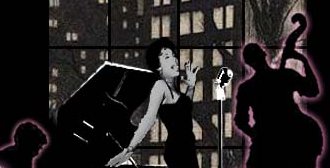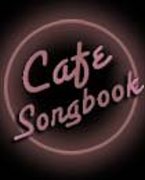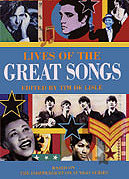Welcome toCafe SongbookInternet Home of the |
 |
 |
| Home || Songs || Songwriters || Performers || Articles and Blogs || Glossary || About Cafe Songbook || Contact/Submit Comment | |
| Search Tips: 1) Click "Find on This Page" button to activate page search box. 2) When searching for a name (e.g. a songwriter), enter last name only. 3) When searching for a song title on the catalog page, omit an initial "The" or "A". 4) more search tips. | |
| Portions of this page have not yet been completed. Thank you for your patience. | |||
Body and Soul |
|||
Written: 1930 |
Music by: Johnny Green |
Words by: Edward Heyman, |
Written for Gertrude Lawrence to sing in her New York act. |
| Page Menu | |||
| Main Stage || Record/Video Cabinet || Reading Room || Posted Comments || Credits | |||
On the Main Stage at Cafe Songbook | |
(Please complete or pause one video before starting another.) |
Ann Hampton Callawayperforming "Body and Soul"with the Barcelona Jazz Orchestra More Performances of "Body and Soul" |
Cafe Songbook Reading Room"Body and Soul" |
||
| Origins of the Song | ||
|
According to jazz critic Will Friedwald, "Body and Soul" was written when, in 1930, Johnny Green and Edward Heyman recieved a call from Gertrude Lawrence who needed some new material for her 1930 New York act. Friedwald's essay on "Body and Soul" in his book Stardust Melodies tells the complete story of the song's origins (Will Friedwald, Stardust Melodies: A Biography of 12 of America's Most Popular Songs, pp. 147 ff. paper-bound Ed.). The remainder of this section is in preparation. |
|
| back to top of page | ||
| Critics Corner | ||
|
Jazz critic Phil Johnson after describing the scene in the 1986 film 'Round Midnight, in which Dexter Gordon plays "Body and Soul," comments on the iconic status of the song:
|
|
| back to top of page | ||
| Lyrics Lounge | ||
(This section is currently in preparation.) Click here to read Cafe Songbook lyrics policy. |
||
| back to top of page | ||
Visitor CommentsSubmit comments on songs, songwriters, performers, etc.
Feel free to suggest an addition or correction. Please read our Comments Guidelines before making a submission. (Posting of comments is subject to the guidelines. Not all comments will be posted.) |
| To submit a comment, click here. |
Posted Comments on "Body and Soul":
No Comments as yet posted |
| back to top of page |
Credits(this page) |
Credits for Videomakers of custom videos used on this page:
Borrowed material (text): The sources of all quoted and paraphrased text are cited. Such content is used under the rules of fair use to further the educational objectives of CafeSongbook.com. CafeSongbook.com makes no claims to rights of any kind in this content or the sources from which it comes.
Borrowed material (images): Images of CD, DVD, book and similar product covers are used courtesy of either Amazon.com
Any other images that appear on CafeSongbook.com pages are either in the public domain or appear through the specific permission of their owners. Such permission will be acknowledged in this space on the page where the image is used.
For further information on Cafe Songbook policies with regard to the above matters, see our "About Cafe Songbook" page (link at top and bottom of every page). |
This section is currently incomplete. The Cafe Songbook |
||
|
Performer/Recording Index
(*indicates accompanying music-video)
|
||
1930
Notes: "Body and Soul" was added to the score of the Arthur Schwartz and Howard Dietz revue "Three's a Crowd" (even though it was not written by them), which opened in New York on October 15, 1930, where it was sung by Libby Holman. Her recording was one of six to reach the American charts in 1930, along with those of Paul Whiteman, Ruth Etting, Annette Hanshaw, Helen Morgan and Ozzie Nelson. Because the song was written for British singer Gertrude Lawrence, albeit for her to perform in New York, it quickly made it back to London where it also achieved success. Video plays same track as on albums at Amazon and iTunes links above. |
||
| back to top of page | ||
Year Music-Video
Notes: |
||
| back to top of page | ||
Year Music-Video
Notes: |
||
| back to top of page | ||
Year
Music-Video: |
||
| back to top of page | ||
Year Music-Video
Notes: |
||
| back to top of page | ||
Year Music-Video
Notes: |
||
| back to top of page | ||
Year Music-Video
Notes: |
||
| back to top of page | ||
Year Music-Video
Notes: |
||
| back to top of page |
| Home || Songs || Songwriters || Performers || Articles and Blogs || Glossary || About Cafe Songbook || Contact/Submit Comment | |
© 2009-2018 by CafeSongbook.com -- All Rights Reserved |


